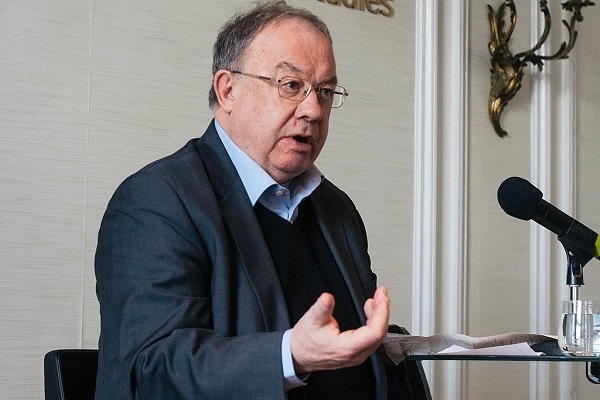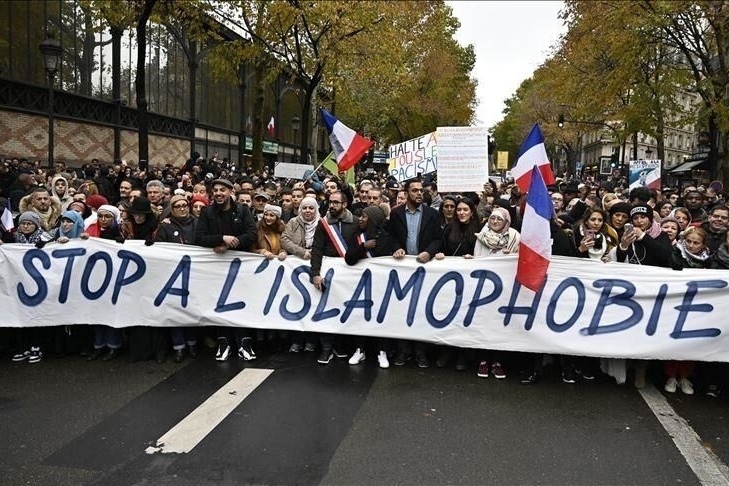West Sees Islam as An Existential Threat: French Scholar


Olivier Roy, a prominent French thinker and professor of Oriental Studies, presented a critical reading of the relationship between the West and the Islamic world in an interview with Al Jazeera, focusing on the evolution and transformation of the concept of Orientalism, the role of Western discourse in creating negative perceptions of Islam and Muslims, and the use of concepts such as progress and human rights as colonial tools in the guise of morality.
Roy, a former director of research at the French National Center for Scientific Research (CNRS) and former director of studies at the French School of Advanced Social Sciences (EHESS), began his career in Afghanistan, where he arrived in 1969 as a young boy barely graduating from high school.
He wandered the streets of Kabul, exploring life in Eastern cities. He later studied in Central Asia, in the ancient cities of Uzbekistan and Tajikistan, before returning to Paris, earning a doctorate in philosophy, and teaching at several French universities and institutes.
He has authored important works in the field of sociology of Islam and religions, most of which have been translated into Arabic. These works include “Confronting Islam and Secularism”, “Sacred Ignorance”, “The Time of Religion without Culture”, “Jihad and Death”, and “Globalized Islam”.
Roy emphasizes that Orientalism was not only a product of the colonial era, but existed long before that. It emerged in the late eighteenth century as an academic discipline focused on the study of the “Orient” as a distinct civilization. The first Orientalists in Europe admired Islamic civilization, but saw it as a glorious past that had lost its relevance to the present.
He believes that this view has permeated Western discourse, with the view that the Islamic world has “fallen off the path of progress and secularism” and must start anew and learn the path of “modernity” from the West.
Roy notes that this approach was not limited to the West, but was also adopted by a number of political leaders in the Islamic world, such as Mustafa Kemal Ataturk, who saw the need to eliminate traditional educational and cultural institutions and create “modern” institutions modeled on the West.
Secularism: A Means of Control
Roy criticizes the Western assumption that “progress can only be achieved through secularism”, arguing that this assumption has become generalized and has become a civilizational condition for belonging to the modern era.
He adds that this view was not harmless, but was politically exploited in the context of colonialism.
Read More:
He cites France as an example, which initially had no interest in Algerian culture, but later established institutions such as Islamic law schools under French management, not with the aim of recognizing local culture, but rather with the aim of controlling and reproducing it to serve colonial hegemony.
Alleged Universalism
Roy strongly criticizes Western use of human rights discourse, arguing that the 1947 Universal Declaration of Human Rights was almost exclusively Western in its self-representation, making its supposed “universalism” a Western export.
He notes that this discourse has become a tool for imposing a particular cultural model, ignoring local contexts or categorizing them against global concepts, such as religion or non-Western social values.
Roy cites the West’s differing positions on global issues, such as the war in Ukraine and the massacre in Gaza, as examples to show that what is supposed to be a principled position has been adapted to geopolitical interests.
From Civilization to Challenge
Roy explains that the most dangerous shift in the discourse of modern Orientalism is the shift from viewing the “Islamic East as a civilization” to viewing it as a “religious challenge”.
Read More:
Since the 1970s, Islam has no longer been seen as a cultural component, but rather as a direct threat to the West, and has become “a pretext for the criminalization of Muslim societies”.

Religious symbols such as the hijab or abstinence from alcohol are automatically associated with authoritarianism and a lack of freedom.
He adds that Islam is no longer seen as part of cultural diversity, but as the fundamental enemy of human rights, a view that is summed up in the slogan “Islam versus modernity”.
Contemporary Crisis of the West: Identity Instead of Principles
Roy says the West is currently witnessing a decline from a “discourse of universal values” to a “discourse of identity and exclusion”, particularly with the rise of populist rhetoric.
He cites France as an example, where, despite its constitution providing for freedom of belief, Islamic religious manifestations are seen as a threat to the unity of the nation. He notes that the paradox lies in the fact that the same countries that claim to promote pluralism abroad seek to suppress diversity at home.
Read More:
He adds that Western democracies are suffering from a structural crisis and are not “threatened by Islam”, as is often claimed, but rather are being undermined from within by populist movements. Meanwhile, first- and second-generation Muslims in Europe largely believe in democracy and want integration, but with respect for their religious freedom.
Roy notes that Muslims in the West demand constitutionally guaranteed rights, such as the right to religious observance or halal food, but are denied them. He argues that Muslims are not opposed to democracy, but are portrayed as such in Western political discourse, which is exploited for domestic political ends.
He adds: The difference in the treatment of Islamist political parties compared to the emerging far-right nationalist parties in Europe, such as the Rally for Nationalism in France and the Alternative for Germany, reflects a double standard: Islamists are barred from participating in politics, while the far right is allowed to expand its power.
Crisis of Orientalism and Dilemma of the West
Roy concludes that the Western world is currently caught in an internal conflict between universal principles and tendencies towards self-identity and the exclusion of others.
He argues that the conflict is no longer between two civilizations, as Samuel Huntington had argued, but between identity and principle, and that Islam becomes a fundamental threat in the Western imagination rather than merely a cultural or religious difference.
The French thinker and academic concludes that the West’s dilemma lies in its failure to achieve equality at home, its double standards abroad, and its declining faith in its fundamental values, including democracy.
4305601



